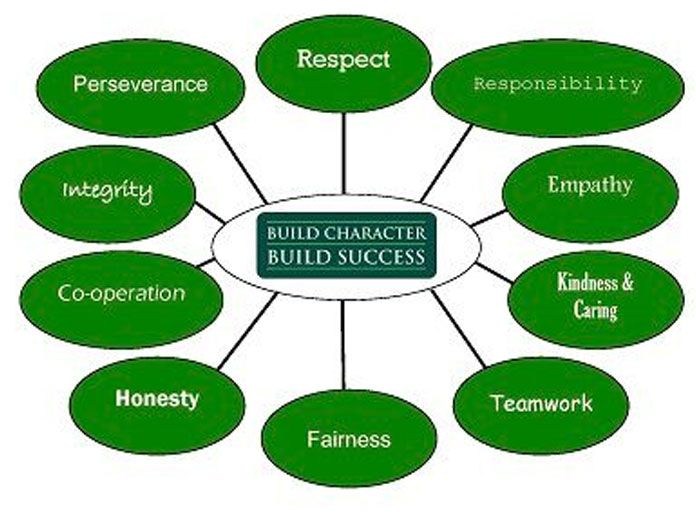Education is to build character

School is not just about learning concepts it is also a place where a foundation can be built for becoming responsible citizen The knowledge perception from the social, cultural and moral brings understanding of the society they live The informal selflearning gives the confidence and helps to build a strong character Its the duty of school to set a tone of respect, honesty and genuine kindne
School is not just about learning concepts; it is also a place where a foundation can be built for becoming responsible citizen. The knowledge perception from the social, cultural and moral brings understanding of the society they live. The informal self-learning gives the confidence and helps to build a strong character. It’s the duty of school to set a tone of respect, honesty and genuine kindness for all students. Teachers are role models for students. They notice what teachers, do, say, tolerate, and how they handle challenges. School is the first social structure the child encounters, and it provides an excellent opportunity for character-building. The classroom activities will encourage students to develop and adopt quality ethical principles and behaviors that can last far beyond the classroom. Here are fewways to help build character within the classroom.
Integrity
It has been said that character can be measured by what one would do if no one were looking. True character is instilled at a deep level so that positive behavior is automatic. Pillars of character to include: integrity, responsibility, respect, caring, courage, diligence and trustworthiness. Assigning creative writing projects on the topic, encouraging students to explore it. Focusing on one pillar per month is a great way to raise awareness of the character traits they can strive to build in themselves, as it is believed that 21 days regular practice becomes a habit. Studentsneed toread the biographies of the people who have taken the untrodden path to help others.
Setting Rules
Set appropriate rules for classroom behavior. And rules need to be set along with the student’s consent. Be clear about the ground rules. Specify what you expect to see from your students, and what is unacceptable. Discuss the rules with the students, as well as the character traits that are embodied and built by each rule. Be sure to be a good example our self as well. Complete own work on time, be neat and punctual, and always show respect for others. Try and stay positive; praise students who exhibit good behavior and good character. Make them positive role models for the class. Teacher can employ a reward system for good behavior such as points or gold stars.
Accountability
Students choose role models; make them responsible for their action. Whether a teacher or adult helps or not. Make an effort to point out positive character role models in history, literature, science and the arts. Deliberately teach students to describe, assess and match the traits and behaviors of these people or commendable characters within a fiction story. Talk about the behavior of current world leaders, sports figures and celebrities, who made people, admire them. Ask students if a person’s words match their actions. Discuss how life is improved with good character traits.
Empathy
A caring attitude can be encouraged by having a zero-tolerance towards character assaults or bullying. Self-respect and respect for others are the basis of positive character traits Make sure that all students are included in activities. Describe the “random acts of kindness” concept and reward students when they demonstrate it. By giving awareness projects on social evil student will understand the society better. We can collect donations for a worthy cause, and serves children. Students might arrange and conduct a recycling project, do work for donations, or take pledges for biking, walking, dancing, etc. to create general awareness.
Volunteerism
The student who stands for a cause and takes initiative to help reward him/her. Take some time in your classroom to highlight the virtues and importance of volunteerism. Allow students to read or tutor younger children, assist in the computer lab, help at a local food bank, assist with reading comprehension or provide support for students recovering from an illness or injury.
Character in action
Debates and quiz add acceptability to students’ character. Brainstorm ideas that cultivate the Pillars of Character discussed in Tip No. 1 and strive for a strong community spirit. Enlist parental and community support.
These are just a few suggestions for building character in schools and students. However, there are actually endless opportunities to do so throughout the school day. We need to make a good citizen not only a scholar.
Sumita Bhattacharya, Principal, Westberry School, Tenali














